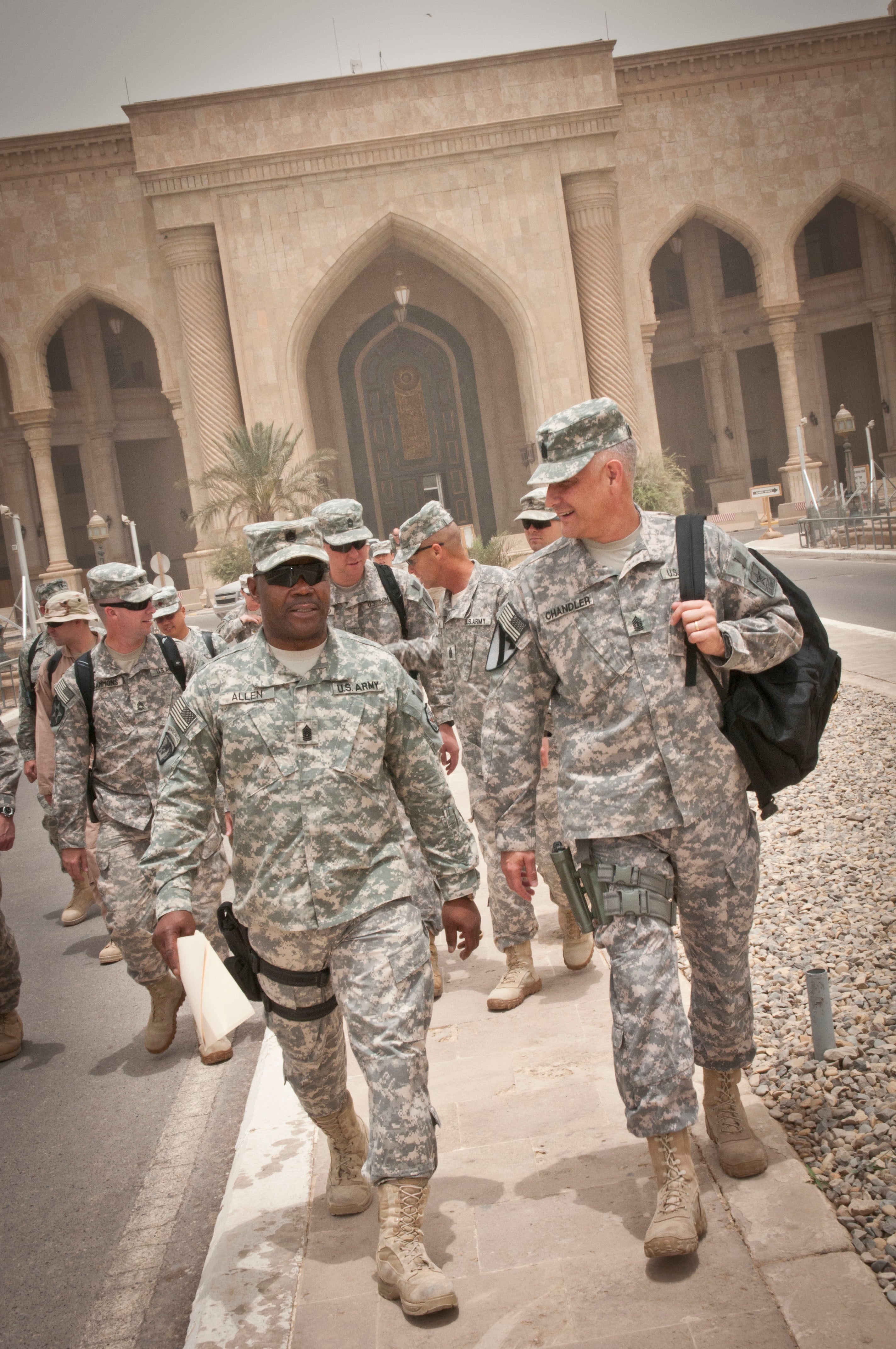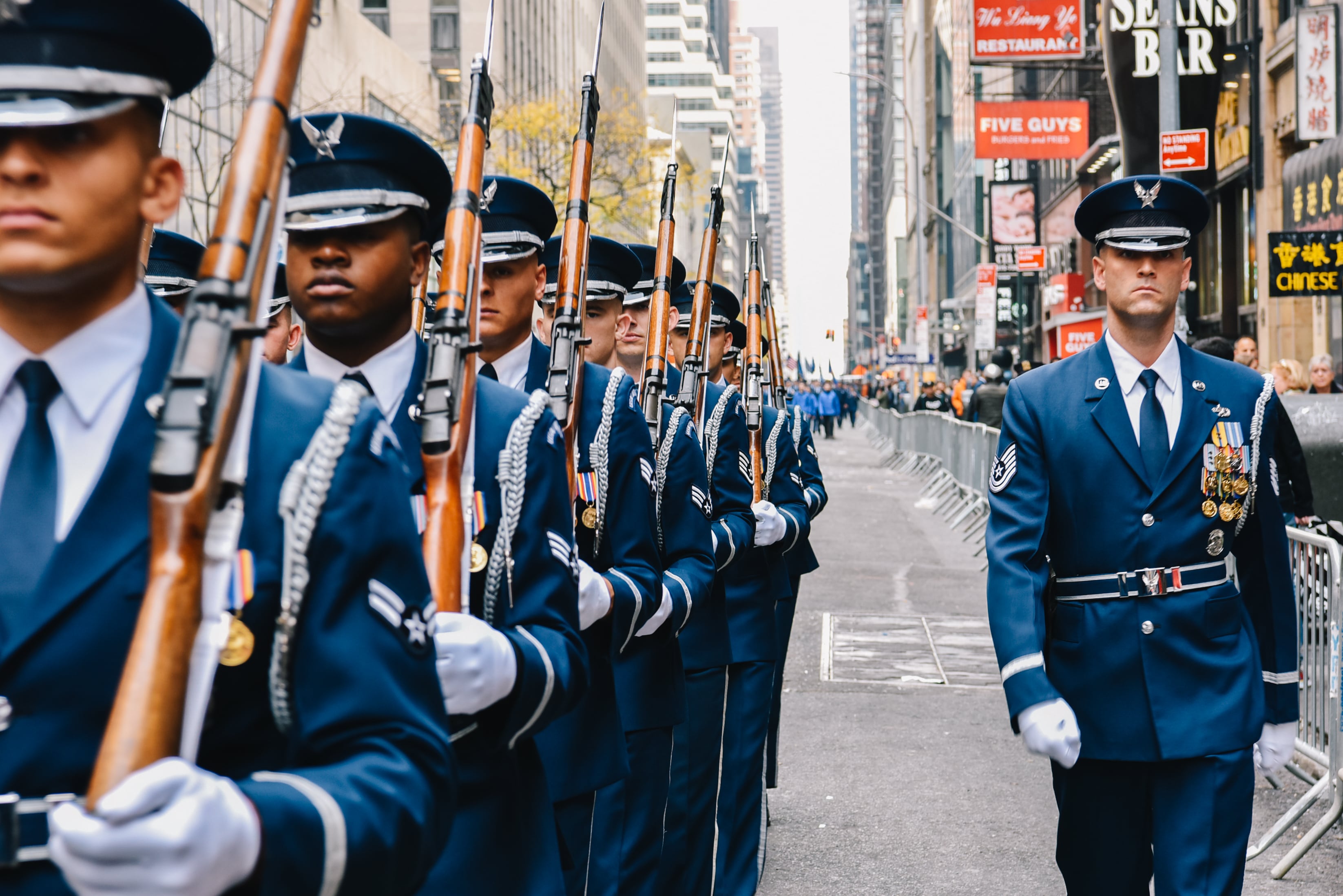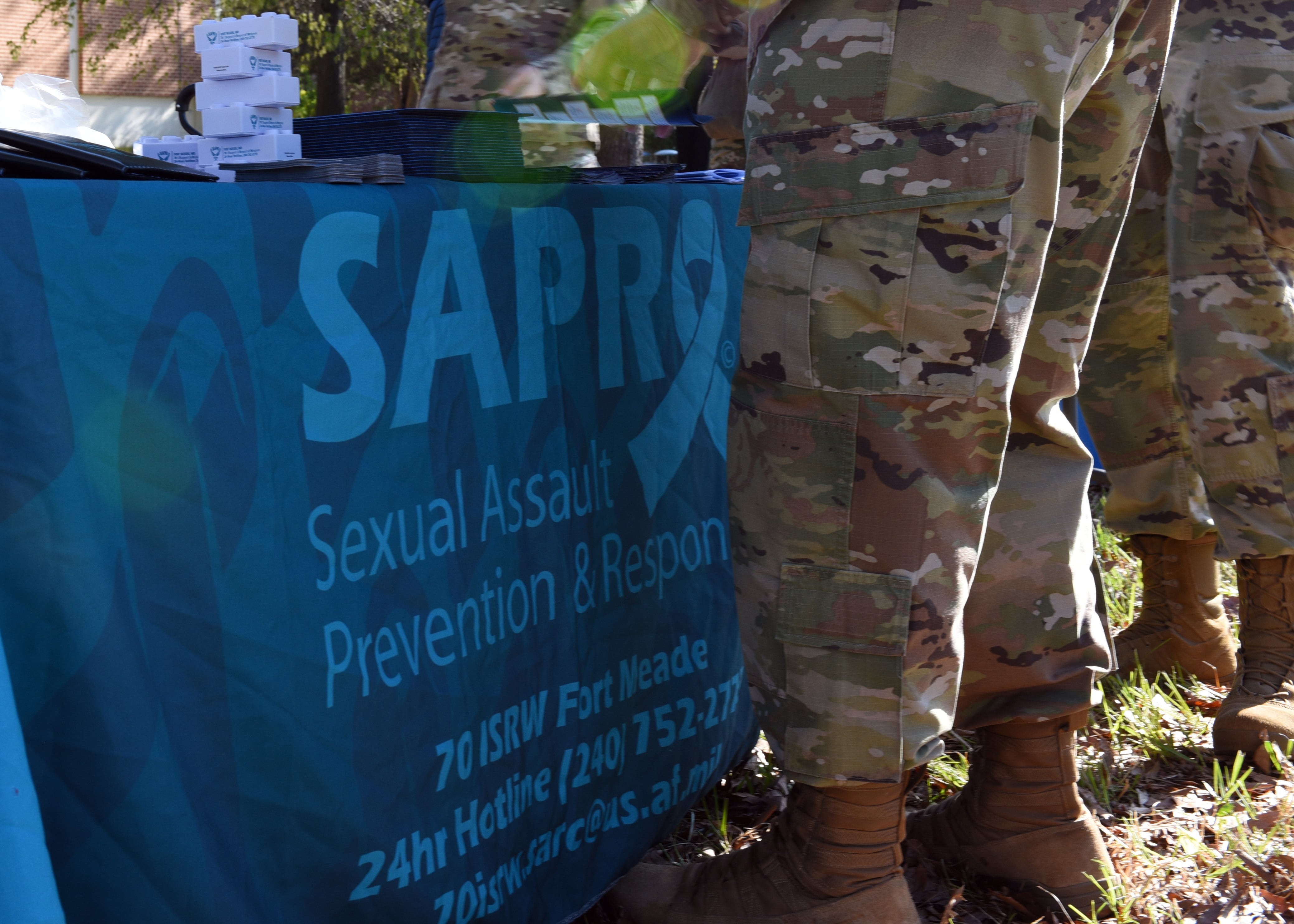As he prepares to hang up his uniform after 34 years of service, Sergeant Major of the Army Raymond Chandler says he's not done looking out for soldiers.
"I want to stay in the veterans' space," Chandler said about his retirement plans. "I'm very concerned about first-term or second-term soldiers who choose to leave the Army, and would like to help link the private and public sector with transitioning soldiers with a much greater level of granularity than we do now."
Chandler, who completes his tenure as the top enlisted soldier in the Army on Friday, said the Army can do a better job preparing soldiers for life after the military.
"It's not the federal government or the Department of the Army's responsibility to find soldiers a job," he said. "But we don't do a good job of ensuring what I consider to be a warm hand-off to society. So how can we help name-your-business find the person that they need beyond just putting a job announcement on Monster.com, for instance, or on Hire our Heroes?"
Chandler is always focused on taking care of soldiers, said Army Chief of Staff Gen. Ray Odierno.
Speaking Jan. 22 during a farewell ceremony in his honor, Odierno said Chandler "made the Army better."
"It's about the institution, not about him," Odierno said. "Everything he's done has been centered on that."
Chandler was heavily involved in several of the Army's key initiatives, Odierno said, including the ongoing drawdown, leader development, suicide prevention, fighting sexual assault and harassment, and more.
"One or two of these issues would have been a complex problem for any sergeant major of the Army, but I've just listed about 10," Odierno said.
During an interview Jan. 20 with Army Times, Chandler looked back on his four-year tenure as the SMA and discussed some of the decisions he helped make and what's next for the Army.
Uniforms and camouflage
When Joint Chiefs Chairman Gen. Martin Dempsey was the Army chief of staff, he tasked Chandler with improving the Army uniform and brand.
This included taking a look at how the Army is perceived by the American public, as well as what the Army can do to improve its physical image, Chandler said.
The upcoming changes to the uniform — the Army is ditching the maligned Universal Camouflage Pattern in favor of the Operational Camouflage Pattern later this year — came in part from feedback from soldiers, Chandler said. Other upgrades include less Velcro and better pockets.
"I think everyone recognized we could have had something that performed better than we have now," he said. "There are a lot of reasons why it didn't happen as fast as we originally anticipated it happening, but you've got to follow the law."
The Army still has to determine how it is going to phase out the current Army Combat Uniforms, Chandler said.
"I'm satisfied that we used an objective way to measure what would be effective for a uniform," he said. "We put a lot of science and a lot of technology into how we would develop the effectiveness of this uniform, and we're going to provide soldiers a much better piece of kit than we have now."
Tattoos and appearance
Last year's update to the Army regulation governing soldier appearance was almost immediately panned by some soldiers for its more restrictive tattoo rules.
The update to Army Regulation 670-1 was released in March and updated in September. It limits the number of tattoos soldiers can have below the elbow and knee, and the regulation also initially barred soldiers who ran afoul of the rules from requesting a commission, sparking anger among many soldiers. The September update to AR 670-1 makes it clear that grandfathered soldiers may request a commission or appointment as long as they have their commander's endorsement.
"Tattoos never had anything to do with a person's performance," Chandler said. "It has to do with how we're perceived by the American people, and what our profession says are the left and right limits."
Chandler said the initial uproar about tattoos appears to have waned based on what he encounters on his trips across the Army, but looking back, he said he "could have done a better job of articulating the 'why' earlier on and to try and help people understand."
He also acknowledged that the Army can still do a better job of making sure the intent of the regulation is understood by junior soldiers.
"I just find it interesting that nine months later I still have people that don't understand that this has absolutely nothing to do with your performance on the battlefield," he said. "It all has to do with how we want to see ourselves as professionals. That message has not gotten to probably where it needs to be most, which is the most junior levels, that this is important, that this is part of who we say we are, and appearance is a piece of that."
Social media
"I thought that another way for me to connect with soldiers was through Facebook and Twitter," Chandler said. "I'm not a Twitter or Facebook native, but I just felt it was important to try and speak to our soldiers beyond what I could do through travel."
But his foray into social media wasn't quite what he anticipated, Chandler said.
"We expected it to be a little bit more professional and a little less aggressive," he said.
Chandler and his team made some changes to how users could post and communicate on his social media pages after "some soldiers, specifically, made some comments on there that were completely unprofessional," he said.
"Just like if they were sitting here saying it, I have a duty just like everybody else does to correct that," he said.
In some instances, Chandler has called individual soldiers.
"People don't believe I actually post anything on there or that I comment," he said. "A couple of folks would say, 'If the sergeant major of the Army was actually paying attention to this, this is what I would ask him. This is what I'd want him to know.'"
It's relatively easy to find soldiers on the Army Knowledge Online network, Chandler said.
"I'd call them up and say, 'OK, sergeant, what's on your mind?'" he said.
And how did those soldiers react? "Anywhere from where it sounded like the person was vomiting because it was actually the sergeant major of the Army or not believing it was me," Chandler said.
"You said you have a question for me, I'm going to take five minutes, I'm going to do some research, and I'm going to call you," he said. "Now if you said something completely inappropriate, we're going to give that to your chain of command. I'm not going to tell [commanders] to give you an Article 15. I can't do that anyway. But I do expect that as an Army leader something is done about this comment about some other soldier or public figures."
The Army has a policy governing the use of social media, and soldiers should abide by it, Chandler said.
If someone posts "'Obama's a moron,' well, OK, look buddy, you don't have the right to say that in public, soldier," Chandler said. "And if you're not aware of what the Army regulation states about making statements, then you need to educate yourself."
Or "'the sergeant major of the Army is a blankety-blankety-blank-blank.' We don't tolerate that in person, why would we tolerate that in the social media space?" Chandler said. "You are supposed to be a professional."
When asked about 1st Sgt. Katrina Moerk, who was awarded an Army Commendation Medal for correcting soldiers' unethical behavior online, Chandler said she was doing what any noncommissioned officer should do.
"I applaud her decision to uphold discipline and standards, just as I would applaud any other NCO who did that," he said. "There are thousands of NCOs out there that do it every single day."
Since news of her ARCOM became public, Moerk has been called out by some soldiers, some labeling her a tattle tale, or worse. Numerous Internet memes making fun of Moerk also have appeared online.
Chandler said the treatment Moerk has received is "reprehensible."
"She didn't ask for that award," he said. "A leader recognized her with an award for doing something. We give people awards for shooting their tanks extremely well. That's a standard. How is that different from her staying this is not OK and actually following up with leadership?"
Soldiers must police themselves online, he said.
"That is a part of our profession," Chandler said. "If we allow people to spout off about whatever they want, or talk about fellow soldiers in ways that are both degrading and demeaning, that's absolutely against the Army policy of treating people with dignity and respect. That's the issue."
Leader development
Growing agile and adaptive leaders is Odierno's top priority, Chandler said, and the Army has moved forward in advancing the way it trains, educates and prepares its noncommissioned officers.
A new fellowship program that allows qualified sergeants major to compete for a scholarship to pursue a master's degree from Pennsylvania State University is one example, he said.
"That's directly about doing more in increasing the cognitive abilities of, in this case, sergeants major, so they can be more value-added when they walk in the door at their next assignment," Chandler said. "We don't want them to have to spend time figuring it out. We want them to have the same skills that their officer counterpart has but also recognizing the traditional role of the NCO, which is the accomplishment of the mission and welfare of soldiers."

Sergeant Major of the Army Raymond Chandler III walks with United States Forces - Iraq Command Sgt. Maj. Joseph R. Allen outside of Al Faw Palace in Bagahdad, Iraq, in June 2009.
Photo Credit: Staff Sgt. Caleb Barrieau/Army
The Army also launched NCO 2020, which is a sweeping look at the entirety of the noncommissioned officer education system, Chandler said.
"We're going to start with the sergeants major because it's a very small population and one that we can learn from without having a huge impact and causing even more anxiety within the Army," he said. "We will then backwards plan from there, for instance with the changes that are going to be recommended for basic training and the Warrior Leaders Course and so forth."
When he joined the Army more than 30 years ago, the average education level for an NCO was seventh grade, Chandler said.
"Today, over 34 years of continuing support for soldier civilian education and professional development, you've got a force now that's more highly educated," he said. "You've got more and more NCOs who've got some type of degree, anywhere from associate's degrees to Ph.Ds. How do we harness that capability?"
The Army's education and training initiatives will get soldiers to "a higher cognitive level," Chandler said.
"You're going to be that creative thinker, agile and adaptable," he said. "Those are important things we expect from our soldiers today."
Remaining challenges
The Army continues to work on trust between soldiers and leaders, Chandler said.
It also is focused on suicide prevention and battling sexual assault and harassment, he said.
These efforts are "starting to show results, but it's still not good enough," he said.
Chandler cited remarks made at the Pentagon by former Staff Sgt. Ryan Pitts, who was awarded the Medal of Honor in July for his actions during the deadly battle in Wanat, Afghanistan.
"One of the things he said that's always resonated with me is that we're our brother's keeper," Chandler said. "That means you have to do the extra, you have to go the extra, and you have to be the extra. You'll be a person who lives a character-driven life, who's committed to their fellow soldier."
Chandler, who suffered from post-traumatic stress and a traumatic brain injury after a rocket attack in Iraq, was one of the first senior Army leaders to openly discuss seeking behavioral health care.
"There are a lot of opportunities out there for you to get the help that you need," Chandler said. "In my case, I'm a better person, I'm a better father, I'm a better husband, and that makes me a better soldier than I ever was before. I have my priorities straight, but I had to go through a long process to figure out what that was."
There is no shame in seeking help, Chandler said.
"We shouldn't look at somebody as weak because they have an injury, whether it's physical or behavioral," he said. "Our job, our duty, is to help them recover as quickly as possible so we can get them back on the team. That's the way we have to think about this."
Favorite assignment?
"Serving as a command sergeant major in combat, I think is the thing that I treasure the most," he said. "For 20 years or so, I trained in the Army to fight and win our nation's wars, and having the opportunity to do it with the 1-7 Cav at Fort Hood, Texas, as part of the 1st Cavalry Division, to me, was the culmination of what I'd invested my life. Everything else after that has been a privilege."
Being the Sergeant Major of the Army
Chandler, who initially did not want to compete for the job, said he promised retired Gen. George Casey, who at the time was the chief of staff, that he would do his best.
"I think the first thing that you have to recognize is it's important to listen, don't talk as much, but listen to what's going on in the environment you're operating in," Chandler said.
As he leaves the job, Chandler said he is proud of the work he and his team have been able to do.
"I'll leave here knowing in my mind that I've done the best I could do," he said. "I'm proud of [my team] and proud of what we've been able to do."
His wife's contribution
Chandler said his wife Jeanne worked tirelessly for soldiers.
"My wife and I got married in 2002, so all she knows is an Army at war," he said.
During Chandler's tenure, Jeanne Chandler traveled extensively with her husband and focused on the Army's Survivor Outreach Services, its child development centers and schools, junior enlisted housing and other family issues.
She also was a member of Defense Secretary Chuck Hagel's family readiness council, Chandler said.
She "really championed" two key issues: standardizing the Exceptional Family Member Program across the services, and improving care for military children with autism, he said.
"I'm extremely proud of her, and on at least one occasion, the secretary [of the Army] has said he got more out of her portion of the trip report than mine," Chandler said. "She's provided 6,000 hours or so of volunteer service over the last four years trying to help our families."
Retirement
Chandler, who will officially retire Aug. 1, said he's feeling "pretty good" about completing his time in the Army.
"We've always said, 'OK, here's where you're going next,' and you figure out where you're going to live," he said. "Now it's a little different. We don't know what we're going to do, and we don't know where we're going to live, so there is some anxiety about that, and I'm sure it's the same for every other soldier and family that's leaving the Army. I'm a transitioning soldier just like the other several thousand that are going on the same time as me."
As for his immediate plans, Chandler said he's looking forward to taking a breather.
"I am going to get up to do [physical training] instead of having to wake up to do PT," he said. "I'm going to take a rest, kind of let go of what I consider to be a pretty frenetic lifestyle, and break contact with the Army, and start to think about what I really want to do next, after I'm retired."
Michelle Tan is the editor of Army Times and Air Force Times. She has covered the military for Military Times since 2005, and has embedded with U.S. troops in Iraq, Afghanistan, Kuwait, Haiti, Gabon and the Horn of Africa.





